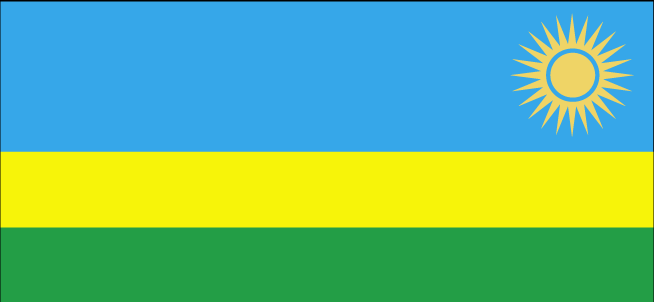Investing in Rwanda


Rwanda is a poor rural country with about 90% of the population engaged in (mainly subsistence) agriculture and some mineral and agro-processing. Tourism is now Rwanda's primary foreign exchange earner and in 2008, minerals overtook coffee and tea as Rwanda's primary export. Minerals exports declined 40% in 2009-10 due to the global economic downturn. The 1994 genocide decimated Rwanda's fragile economic base, severely impoverished the population, particularly women, and temporarily stalled the country's ability to attract private and external investment. However, Rwanda has made substantial progress in stabilizing and rehabilitating its economy to pre-1994 levels. GDP has rebounded with an average annual growth of 7-8% since 2003 and inflation has been reduced to single digits. Nonetheless, a significant percent of the population still live below the official poverty line. Despite Rwanda's fertile ecosystem, food production often does not keep pace with demand, requiring food imports. Agricultural production has increased significantly over the last three years and last year Rwanda was self sufficient in food production. Rwanda continues to receive substantial aid money and obtained IMF-World Bank Heavily Indebted Poor Country (HIPC) initiative debt relief in 2005-06. In recognition of Rwanda's successful management of its macro economy, in 2010, the IMF graduated Rwanda to a Policy Support Instrument (PSI). Rwanda also received a Millennium Challenge Threshold Program in 2008. Africa's most densely populated country is trying to overcome the limitations of its small, landlocked economy by leveraging regional trade. Rwanda joined the East African Community and is aligning its budget, trade, and immigration policies with its regional partners. The government has embraced an expansionary fiscal policy to reduce poverty by improving education, infrastructure, and foreign and domestic investment and pursuing market-oriented reforms. Energy shortages, instability in neighboring states, and lack of adequate transportation linkages to other countries continue to handicap private sector growth. The Rwandan government is seeking to become regional leader in information and communication technologies. In 2010, Rwanda neared completion of the first modern Special Economic Zone (SEZ) in Kigali. The SEZ seeks to attract investment in all sectors, but specifically in agribusiness, information and communications technologies, trade and logistics, mining, and construction. The global downturn hurt export demand and tourism, but economic growth is recovering, driven in large part by the services sector, and inflation has been contained. On the back of this growth, government is gradually ending its fiscal stimulus policy while protecting aid to the poor.
BNRNET - Banque Nationale du Rwanda - http://www.bnr.rw/
Rutongo Mines
Ruddington Services
Rwanda Geology and Mines Authority
Wolfram Mining & Processing
Rwanda News
2011-06-30 - (bl) - Rwandan mining companies expected to boost tin exports amid record prices
Rwanda News Agency/Agence Rwandaise d'Information (Kigali) - http://www.ari-rna.co.rw
The New Times (Kigali) - http://www.newtimes.co.rw/
Countries that border Rwanda: Democratic Republic of the Congo | Burundi | Tanzania | Uganda
Learn more:
Back to Country Investing



